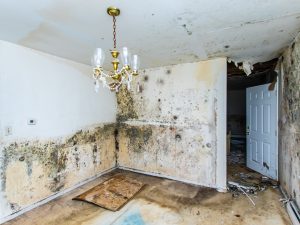Housing Disrepair in Manchester: How to Navigate the Challenges and Ensure Safe Living Conditions
Housing Disrepair in Manchester: How to Navigate the Challenges and Ensure Safe Living Conditions
Living in a safe and comfortable home is a fundamental right that everyone deserves. However, for many residents in Manchester, housing disrepair has become a distressing reality that threatens their health and well-being. From damp and mold to faulty electrical systems and structural issues, navigating the challenges of living in a property in disrepair can be overwhelming.
In this article, we will delve into the pressing issue of housing disrepair in Manchester and provide valuable insights on how to navigate these challenges effectively. We will explore the rights of tenants, the responsibilities of landlords, and the available legal avenues to ensure safe living conditions. Whether you are a tenant dealing with a negligent landlord or a landlord seeking guidance on complying with your obligations, this article aims to provide you with practical advice and useful resources.
By addressing the housing disrepair problem head-on, we can work towards creating a safer and healthier living environment for all residents in Manchester. So, let's dive in and empower ourselves with the knowledge and tools needed to tackle housing disrepair issues effectively.
Understanding housing disrepair
Housing disrepair refers to the condition of a property that is in need of repair or maintenance. It includes a wide range of issues, such as dampness, mold growth, leaks, faulty plumbing or heating systems, electrical hazards, structural problems, and pest infestations. These issues can not only affect the overall quality of life but also pose serious health risks to residents.
Dampness and mold, for example, can lead to respiratory problems, allergies, and other health issues. Structural issues, such as cracks in walls or ceilings, can compromise the stability of a building and pose a safety hazard. Faulty electrical systems can increase the risk of fires or electrical shocks. These are just a few examples of the potential dangers associated with housing disrepair.
The impact of housing disrepair on residents
Living in a property with disrepair can have a significant impact on the physical and mental well-being of residents. Constant exposure to dampness and mold, for instance, can lead to respiratory problems, such as asthma, bronchitis, and allergies. It can also worsen existing health conditions, making it difficult for residents to lead a comfortable and healthy life.
Furthermore, living in a property with structural issues, faulty plumbing, or electrical hazards can pose serious safety risks. Residents may be at risk of injuries due to collapsing ceilings or floors, flooding, or electrical accidents. The stress and anxiety caused by living in a property with disrepair can also have a negative impact on mental health, affecting overall quality of life.
Legal rights and responsibilities for landlords and tenants
Both landlords and tenants have rights and responsibilities when it comes to housing disrepair. It is important to understand these rights and responsibilities to effectively navigate the challenges associated with housing disrepair.
As a tenant, you have the right to live in a property that is safe and in a good state of repair. This means that your landlord is responsible for maintaining the property and addressing any issues that arise. If your landlord fails to do so, you have the right to take action to ensure that the necessary repairs are carried out.
On the other hand, landlords have a legal duty to ensure that the property they rent out is fit for habitation. This includes keeping the property in good repair and addressing any issues that may arise. Landlords are also required to ensure that the property meets certain health and safety standards, such as providing adequate ventilation, heating, and sanitation facilities.
Common housing disrepair issues in Manchester
Manchester, like many other cities, faces several common housing disrepair issues. These issues can range from minor maintenance problems to more serious structural defects. Some of the most common housing disrepair issues in Manchester include:
- Dampness and mold growth: Manchester's damp climate can lead to dampness and mold growth in properties. This can cause respiratory problems, allergies, and damage to the property if left unaddressed.
- Structural issues: Older properties in Manchester may suffer from structural issues, such as cracks in walls or subsidence. These can compromise the stability of the building and pose safety risks.
- Faulty plumbing or heating systems: Problems with plumbing or heating systems can lead to leaks, water damage, and a lack of heating or hot water. This can make the property uninhabitable, especially during colder months.
- Electrical hazards: Faulty electrical systems, such as exposed wires or outdated wiring, can increase the risk of fires or electrical shocks. It is important to address these issues promptly to ensure the safety of residents.
- Pest infestations: Manchester's urban environment can attract pests, such as rats, mice, and insects. These infestations can be a health hazard and require professional pest control.
These are just a few examples of the housing disrepair issues that residents in Manchester may face. It is important to be aware of these issues and take appropriate action if they arise.
Reporting housing disrepair to your landlord or local authority
If you are a tenant and notice housing disrepair issues in your property, the first step is to report them to your landlord or letting agency. It is important to do this in writing and keep a record of all communication for future reference. Be clear and specific about the issues you are experiencing and the repairs that are needed.
Under the Landlord and Tenant Act 1985, landlords have a legal obligation to carry out repairs in a reasonable time frame. If your landlord fails to address the disrepair issues within a reasonable time, you may need to escalate the matter.
If reporting the issue to your landlord does not lead to a satisfactory resolution, you can contact your local authority's housing department. They have the power to inspect properties and take action against landlords who fail to meet their obligations. Provide them with all the necessary details and evidence, such as photographs or copies of correspondence, to support your case.
Steps to take if your landlord fails to address housing disrepair
If your landlord fails to address the housing disrepair issues within a reasonable time frame, there are several steps you can take to ensure the necessary repairs are carried out:
- Seek legal advice: Consult with a housing solicitor who specializes in disrepair cases. They can provide you with guidance on your legal rights and options for recourse.
- Mediation: In some cases, mediation can help resolve disputes between tenants and landlords. A neutral third party can facilitate discussions and help find a mutually acceptable solution.
- Housing disrepair claim: If all else fails, you may need to consider making a housing disrepair claim against your landlord. This can involve taking legal action to force the landlord to carry out the necessary repairs and potentially seek compensation for any damages or losses suffered.
It is crucial to seek legal advice before proceeding with any legal action. A housing solicitor can guide you through the process and help you understand the best course of action based on your specific circumstances.
Seeking legal assistance for housing disrepair cases
When dealing with housing disrepair issues, it is often beneficial to seek legal assistance. A housing solicitor can provide you with expert advice and support throughout the process. They can help you understand your rights, navigate the legal system, and ensure that your case is properly presented.
A housing solicitor can assist with various aspects of housing disrepair cases, including:
- Assessing the validity of your claim: A solicitor can review your case and determine whether you have a valid claim for housing disrepair. They will consider factors such as the severity of the disrepair, the impact on your health and well-being, and the actions taken by your landlord.
- Gathering evidence: A solicitor can help you gather the necessary evidence to support your case. This may include photographs, expert reports, witness statements, and any correspondence with your landlord or local authority.
- Negotiating with your landlord: If possible, a solicitor can engage in negotiations with your landlord or their legal representatives to reach a resolution. They can advocate on your behalf and ensure that your rights are protected.
- Representing you in court: If your case proceeds to court, a housing solicitor can represent you and present your case in the most effective manner. They will ensure that all necessary legal procedures are followed and that your interests are represented.
Resources and organisations that can help with housing disrepair issues
When facing housing disrepair issues in Manchester, there are several resources and organizations that can provide assistance and support:
- Shelter: Shelter is a national charity that offers housing advice, support, and legal assistance to individuals facing homelessness or housing issues. They have a dedicated helpline and local offices in Manchester where you can seek advice.
- Citizens Advice: Citizens Advice provides free, confidential advice on a wide range of issues, including housing. They have local branches in Manchester where you can access face-to-face or phone consultations.
- Greater Manchester Housing Action: Greater Manchester Housing Action is a grassroots organization that campaigns for safe, secure, and affordable housing for all. They provide resources and support for individuals and communities facing housing issues.
- Manchester City Council: The Manchester City Council's housing department can provide guidance and assistance on housing disrepair issues. They have powers to inspect properties and take enforcement action against landlords who fail to meet their obligations.
These are just a few examples of the resources and organizations available to help with housing disrepair issues in Manchester. It is important to reach out to these organizations for advice and support tailored to your specific situation.
Preventive measures to avoid housing disrepair
While it is essential to address housing disrepair when it occurs, taking preventive measures can help avoid these issues in the first place. Here are some tips to help landlords and tenants prevent housing disrepair:
- Regular property inspections: Landlords should conduct regular inspections of their properties to identify any potential maintenance or repair needs. This allows them to address issues promptly before they escalate.
- Proper maintenance: Landlords should ensure that regular maintenance tasks, such as cleaning gutters, servicing boilers, and checking for leaks, are carried out. Tenants should also take responsibility for reporting any maintenance issues to their landlord promptly.
- Ventilation and condensation control: Proper ventilation is essential to prevent dampness and mold growth. Landlords should ensure that properties have adequate ventilation, such as extractor fans in kitchens and bathrooms. Tenants should also ensure that they ventilate the property properly by opening windows or using ventilation systems.
- Prompt reporting of issues: Tenants should report any housing disrepair issues to their landlord as soon as they arise. This allows landlords to address the issues promptly and prevent them from escalating.
- Compliance with health and safety regulations: Landlords should ensure that their properties meet all relevant health and safety regulations, such as gas and electrical safety standards. Regular inspections and certifications should be carried out to ensure compliance.
By taking these preventive measures, landlords and tenants can work together to maintain the integrity of the property and prevent housing disrepair issues from arising.
Conclusion: Ensuring safe living conditions in Manchester
Housing disrepair is a pressing issue in Manchester that affects the health and well-being of residents. Whether you are a tenant dealing with a negligent landlord or a landlord seeking guidance on complying with your obligations, it is important to understand your rights and responsibilities.
By reporting housing disrepair issues, seeking legal assistance when needed, and accessing the resources and organizations available, we can work towards creating a safer and healthier living environment for all residents in Manchester. Taking preventive measures and addressing issues promptly can help avoid housing disrepair and ensure that everyone has access to safe and comfortable homes.
Together, we can navigate the challenges of housing disrepair and ensure that all residents in Manchester enjoy the fundamental right to safe living conditions. Let us empower ourselves with knowledge, take action, and create positive change in our communities.


